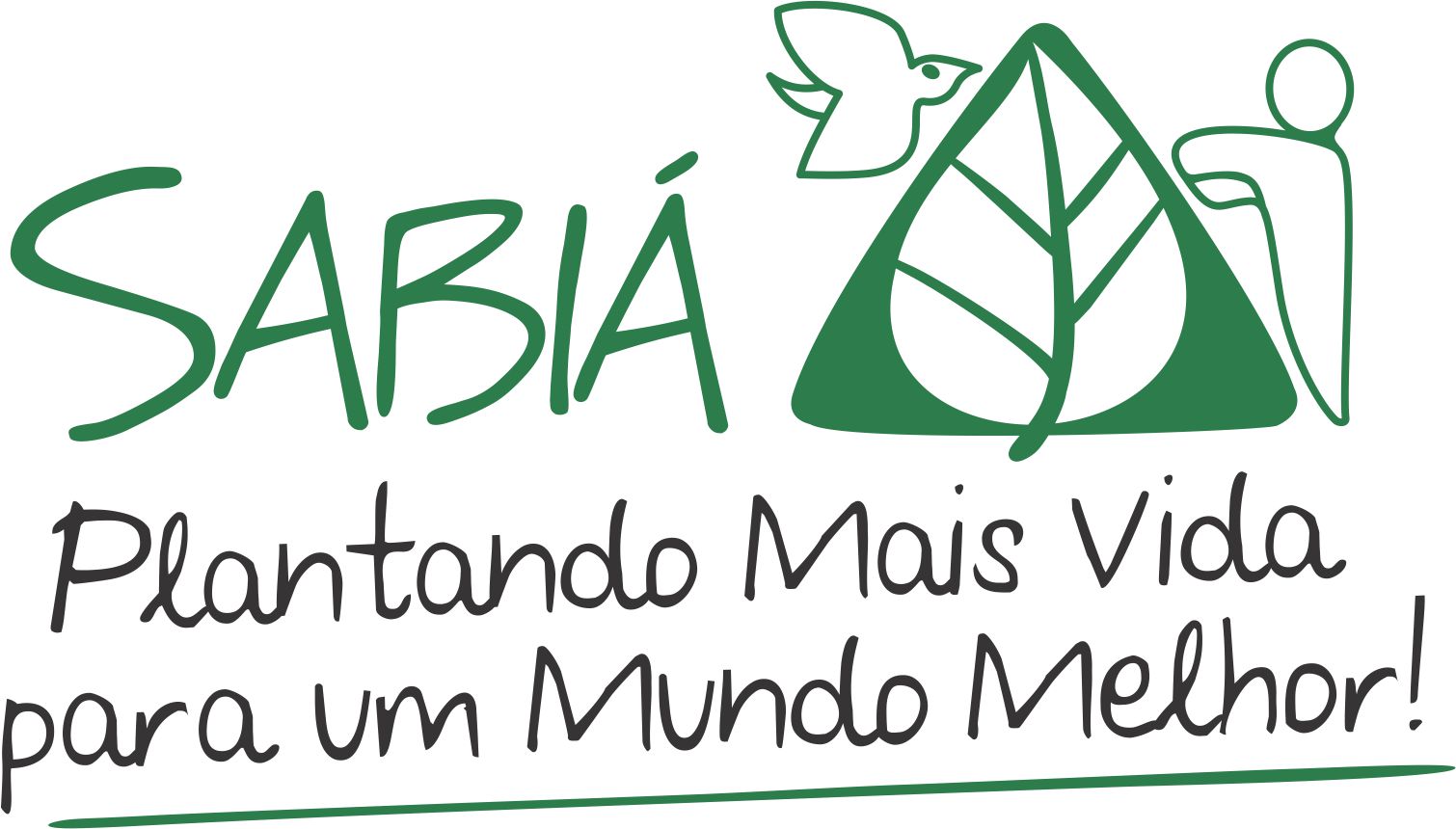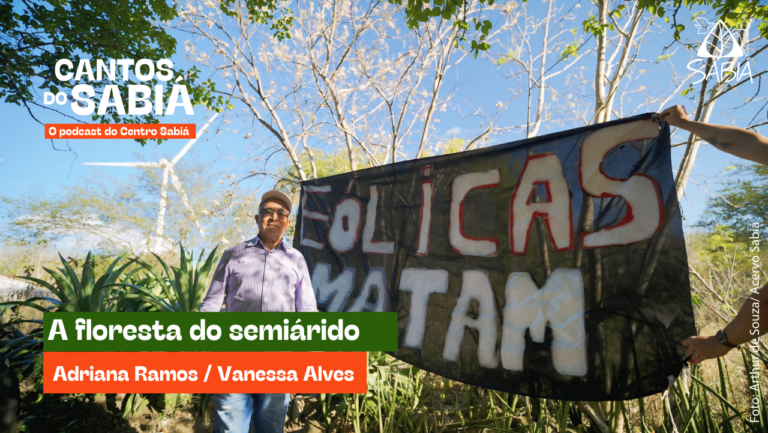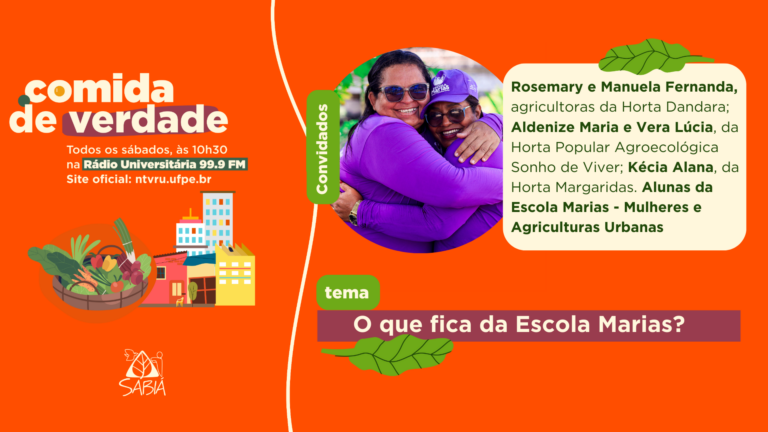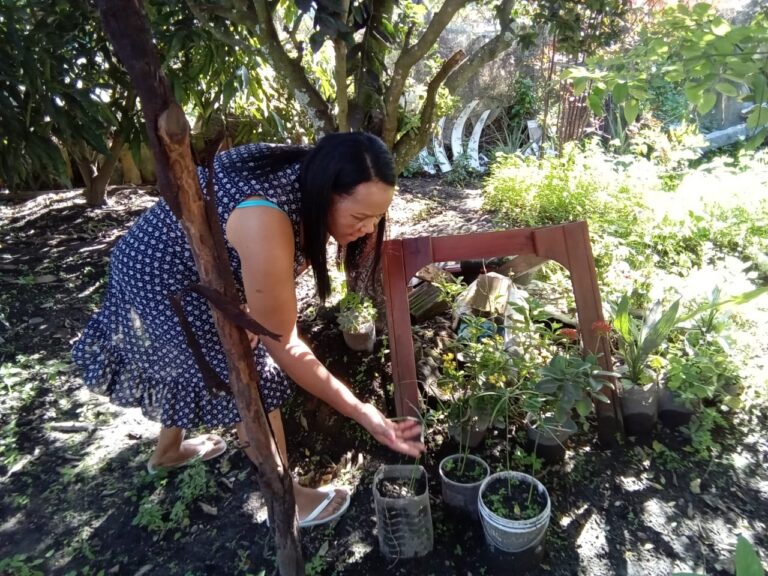Sítio São João, pioneer in agroforestry agriculture, receives last urban agriculture exchange
Yesterday (16) took place the sixth and last exchange of knowledge and experiences of the Urban Agriculture Project - Producing Real Food and Generating Quality of Life.
Maria Menezes
Sabiá Center Communication Intern
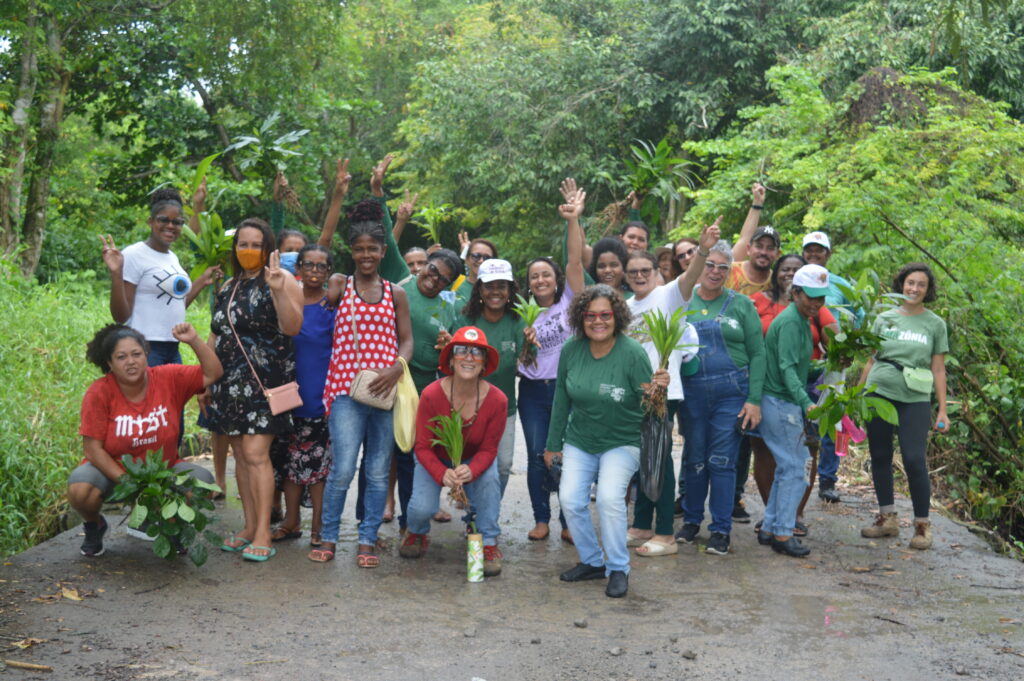
Yesterday (16) took place the sixth and last exchange of knowledge and experiences of the Urban Agriculture Project – Producing Real Food and Generating Quality of Life. The action is carried out by the Centro Sabiá, in partnership with Casa da Mulher do Nordeste and Federação de Órgãos para Assistência Social e Educacional – FASE, through the Ministry of Agriculture, Livestock and Supply – SICONV N 909893/2021.
Since 2021, the project has been transforming the reality of about 280 hungry people in the Metropolitan Region of Recife. There are 15 communities served by the implantation of community gardens for the production of food without poison in the city. Women are the main beneficiaries of the action, they participated and are involved in the construction of the gardens, care, and daily management. In addition to practical agroecological farming activities, urban women farmers have access to a process of political and food education. The focus, besides bringing food to the family table, is to bring education through dialogues, exchange of experiences, and experience reports, so that these women and their families can improve their eating habits and understand their social rights.
Therefore, since last year, the Urban Agriculture Knowledge and Experience Exchanges have been taking place. Women from the 15 communities assisted by the Centro Sabiá, Casa da Mulher do Nordeste and FASE, visit several agroecological urban agriculture initiatives in the Metropolitan Region of Recife. In total, there were 6 meetings, in which the beneficiaries had access to dialogues and practical activities, from medicinal plants and popular medicine to the importance of the traditions of the native and terreiro peoples. With all this learning, the women can go back to their communities and replicate the acquired knowledge, benefiting the garden.
This last exchange, held at Sítio São João, in the community of Inhamã, in the municipality of Abreu e Lima, located in the Metropolitan Region of Recife, ended the cycle of meetings in a positive way. The São João farm is a pioneer in Agroforestry Systems in Pernambuco. Dona Lenir and Jones Manoel (in memory) built a system over 29 years, which today is an example of good agroecological farming practices. Jones is a reference for agroforestry agriculture in the state, a founding partner of the Centro Sabiá and the first agroecological fair in Pernambuco, the Feira das Graças. Dona Lenir, who continues this work, is also a reference in the processes of processing and commercialization of agroecological food.
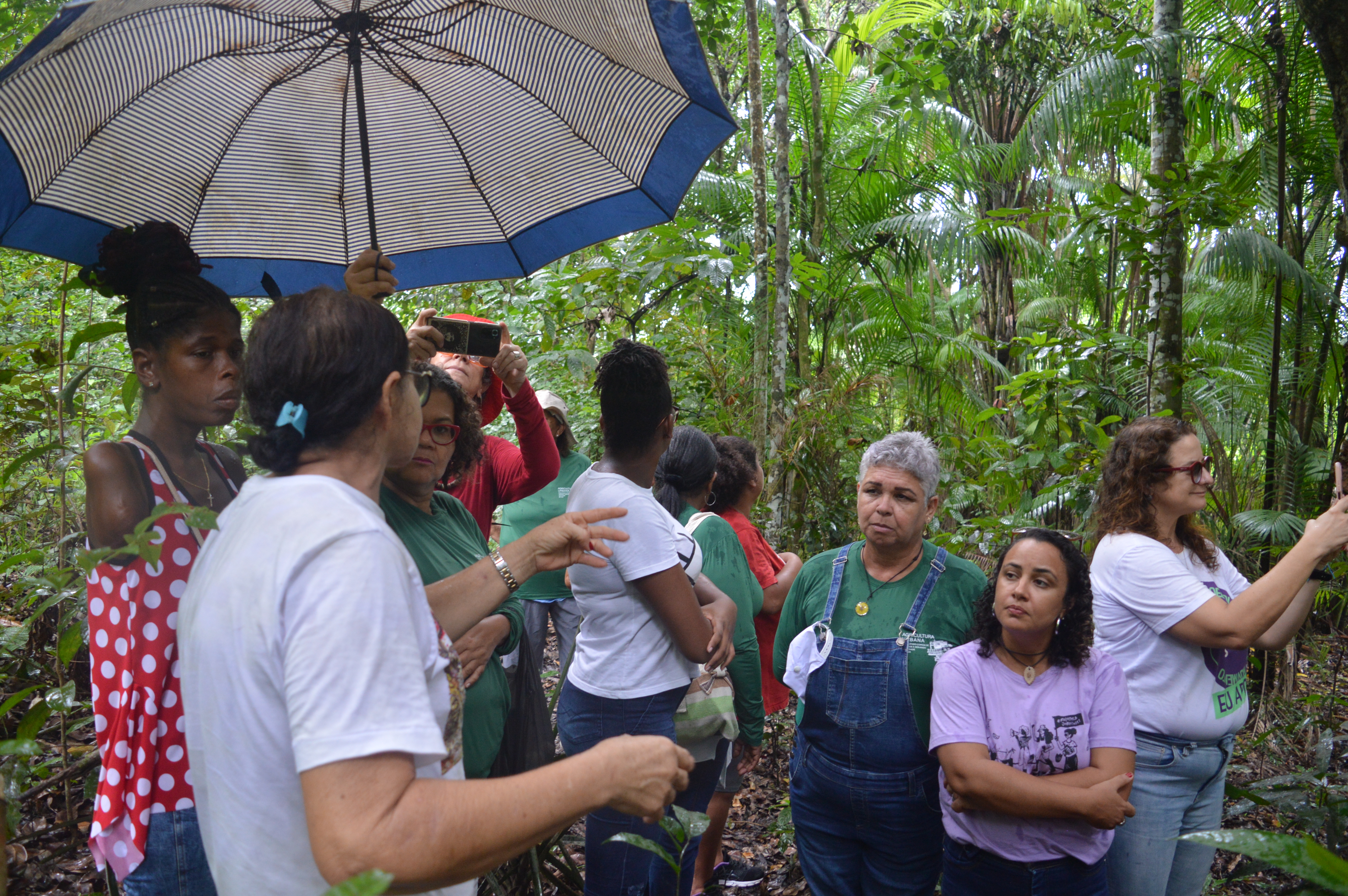
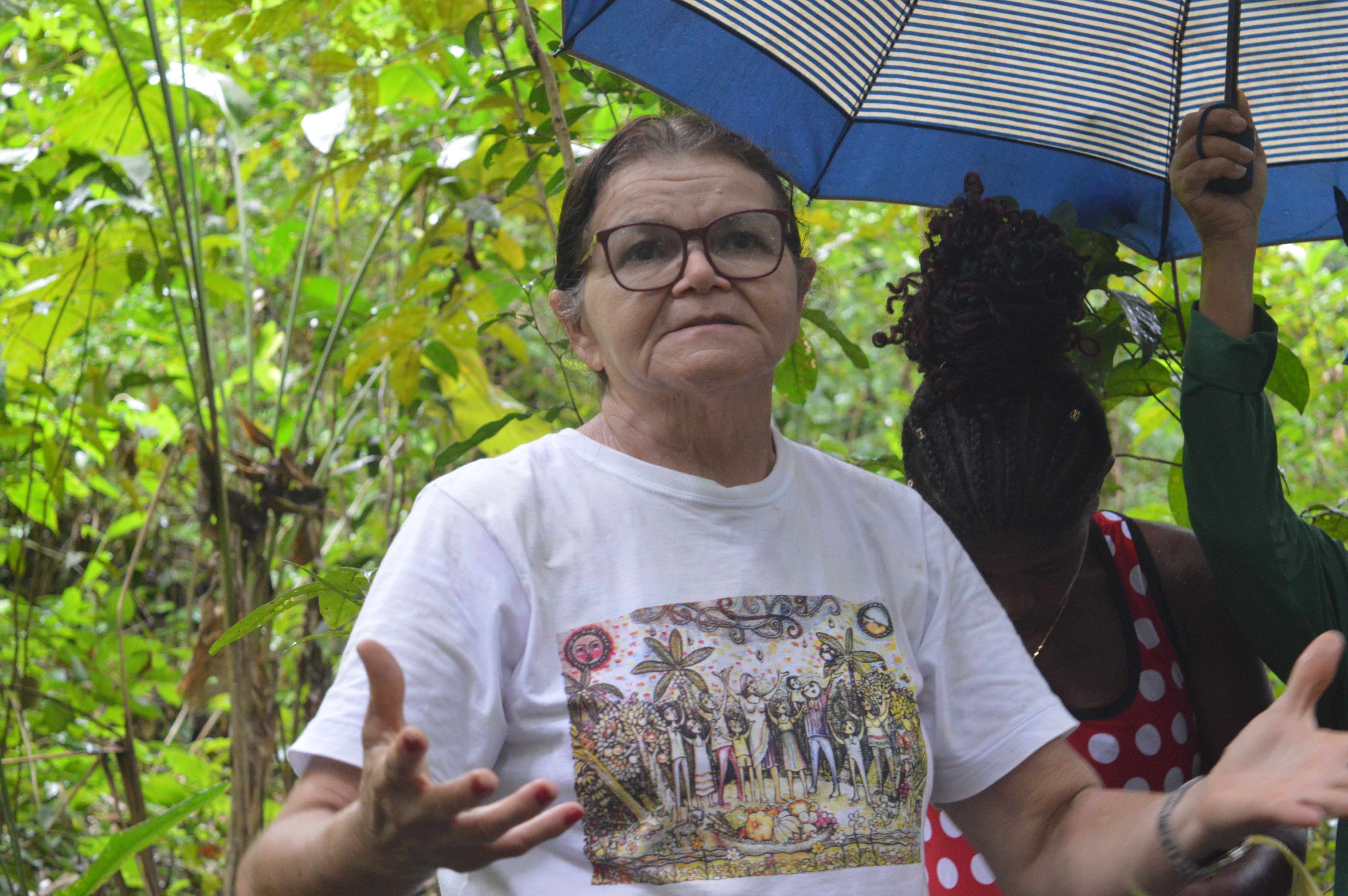
Several congresses and exchanges have already taken place on Jones and Dona Lenir’s property. But since her passing in 2017, the Urban Agriculture Exchange was the first one Dona Lenir hosted on her property to talk about her experience. The farmer told her story and shared all her experience, accumulated in 29 years of work in the Agroforestry System and food processing, with about 30 women present. Lenir talks about the importance of the invitation and highlights the partnership with the Sabiá Center. “The invitation reminded me of all the other times we hosted people here, when Jones was still with us. This was the first meeting I received without him, and it is gratifying to know about the work they are doing with so much effort in the urban gardens, I feel fulfilled to be able to contribute with their knowledge. I always talk about the Centro Sabiá in my speech because I believe that many fruits from here came from this partnership, this relationship that Sabiá has with us is very rewarding”.says Lenir.
The relevance of agroforestry knowledge to urban agriculture
The Centro Sabiá’s urban agriculture technician, Simone Arimatéia, talks about the initiative to hold this last exchange on Dona Lenir’s property. For her, it is an important milestone in this closing of the cycle to visit a pioneer Agroforestry System and reference for the agroecological movement in Pernambuco. “It is very important for women farmers to have access to crops that are not planted in the city. There are people who have never seen an acai, cocoa or cinnamon tree, for example, and today they have had this opportunity. Being inside this environment is an opportunity to be in contact with the forest and to work on food processing issues as well”.says the technician.
During the visit, the group learned about the difference between the soil of an Agroforestry System and the soil that is found in the city, where they need to do the vegetable gardens, and how it is possible to approach this quality of soil to bring benefits to production in the city. The group was also introduced to the composting process, the relevance of the correct pruning process in an agroforest, and the role of species diversity (plantings).
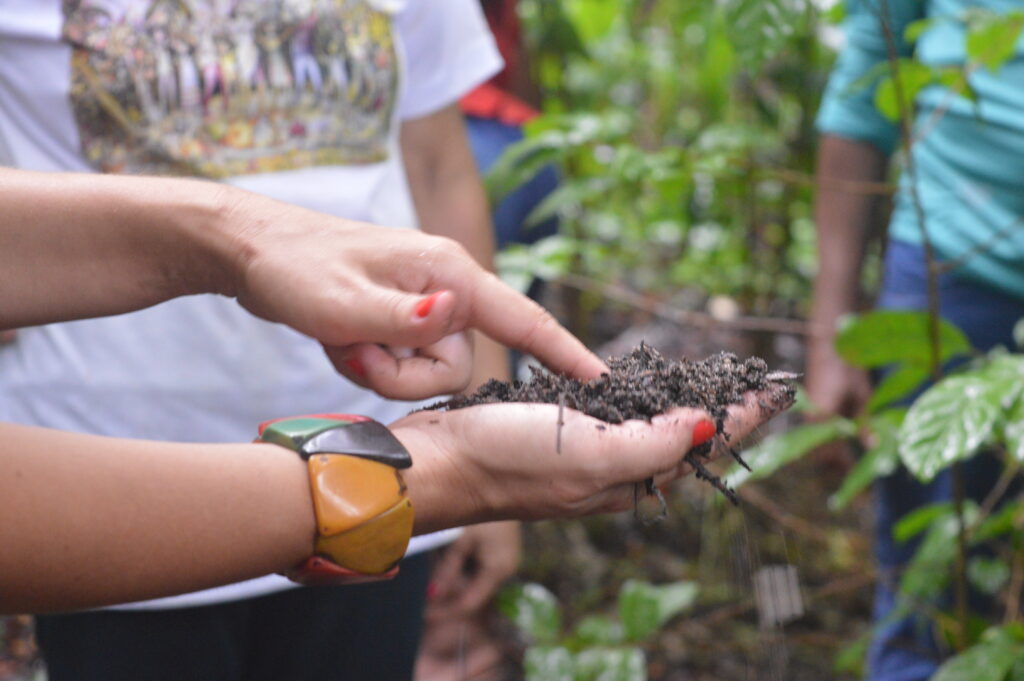
In addition, Lenir and her daughter, Verônica, shared with the group their work with food processing and commercialization. “ Today, I support my family with our work, our income comes from here,” Verônica shared. The family sells agroecologically based vegan breads, jams, and snacks.
Cris, an urban farmer benefited by the project, highlights the similarities between agroforestry and urban gardens. ” The logics are similar, because in the same space where we plant eggplant, next to it we plant cilantro and chives, for example. The exchange ended with the culmination of the group’s learning among themselves, the main highlights brought by the women were the contact with nature, the desire to learn more about the processing of food, and the importance of the correct management of agro-forestry, and in the case of their realities, of vegetable gardens.
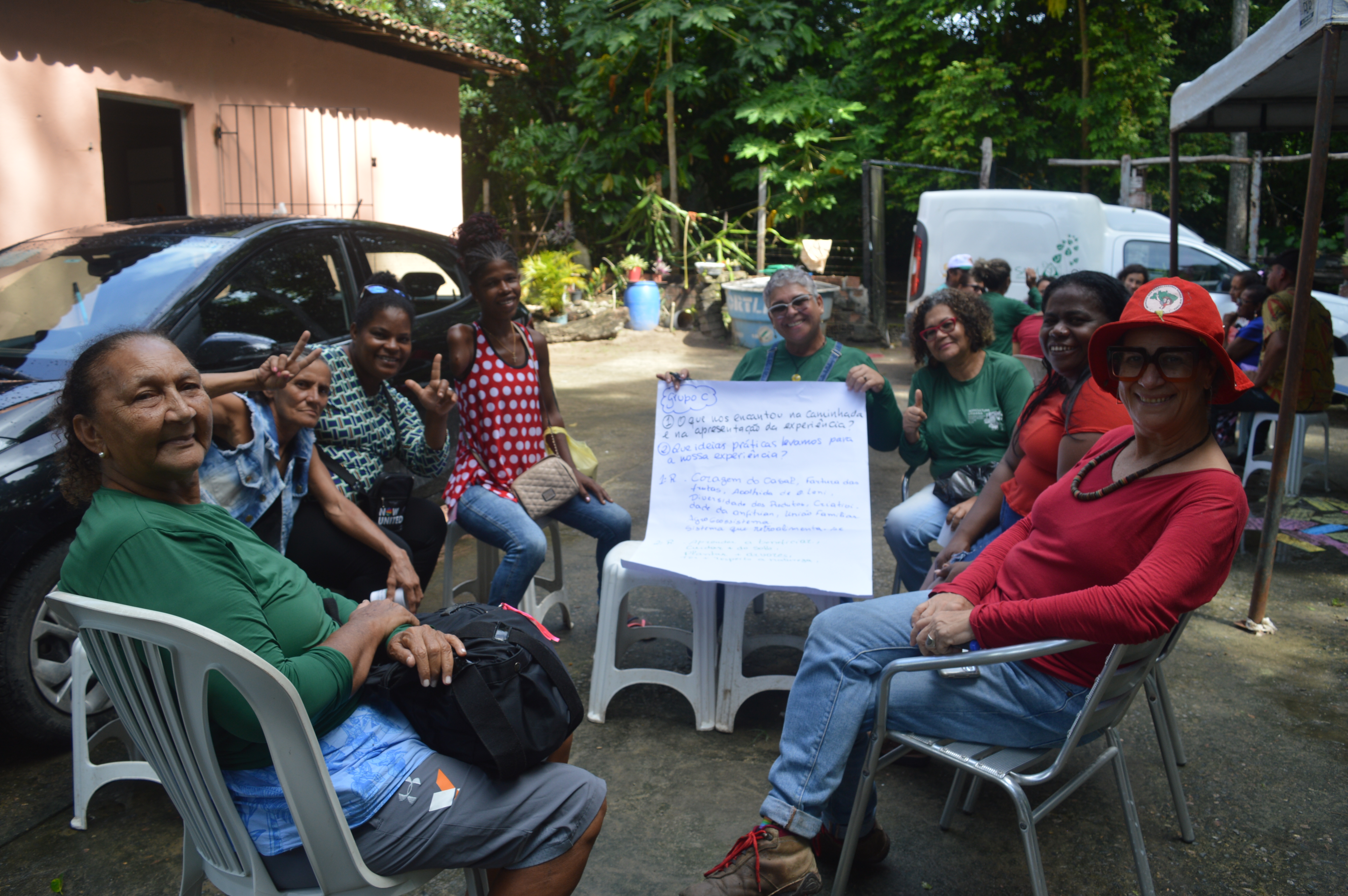
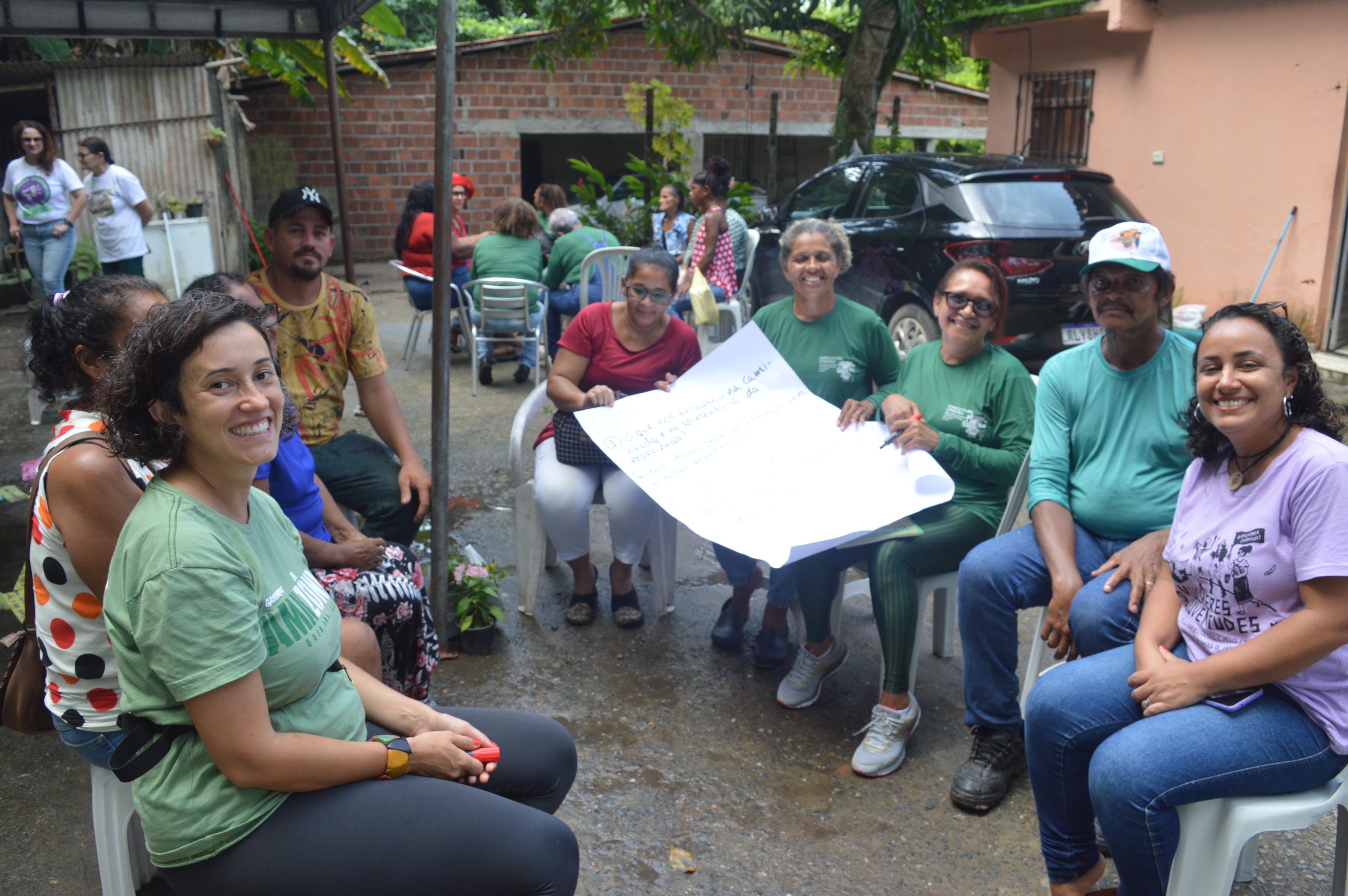
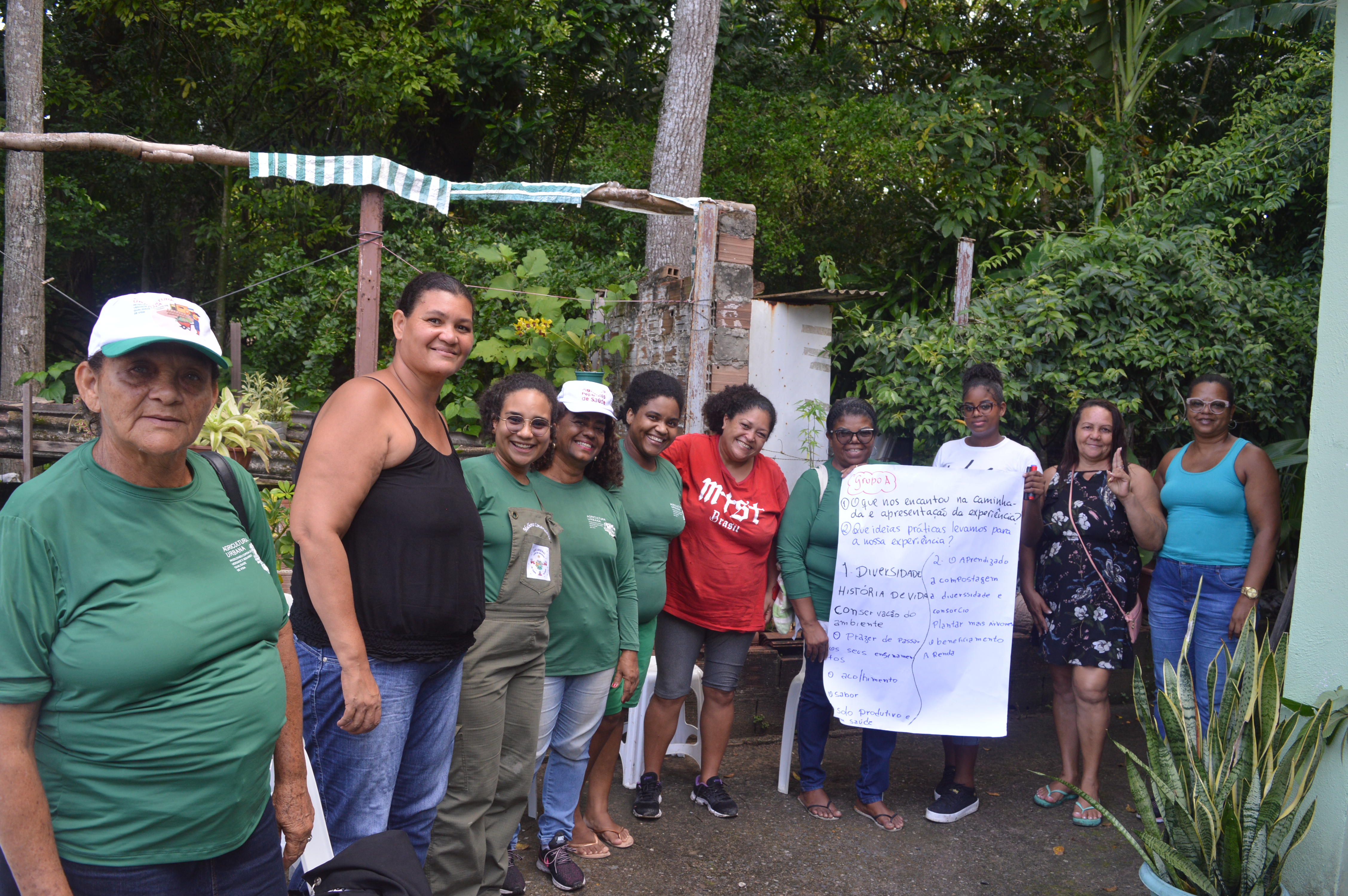
The project is in its final phase, but the work with the popular gardens continues. You can be part of this transformation by contributing to the work of the Centro Sabiá. It is being experienced in practice that fighting hunger in the city through agroecological urban agriculture is possible. With popular education, female empowerment, and good agricultural practices, 15 communities are already on this path.
Nothing found.

